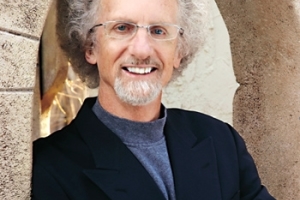
Tullian Tchividjian
Christian Post Columnist
Latest

The Double-Reach of Self-Righteousness
There's an equally dangerous form of self-righteousness that plagues the unconventional, the liberal, and the non-religious types. We become self-righteous against those who are self-righteous

Three Ways We Say 'No' to Law
The Law is shorthand for an accusing standard of performance. Whenever the Law is coming, accusation comes close behind. Whenever an expectation stands before us, we are either condemned by our failure before it, or we become condemners in our fulfillment of it. The Law is unfeeling – it tolerates no excuses, it accepts no shortcuts.

Hiding From God Behind His Law
There are two ways we can miss the mark of righteousness before God, two ways the relationship can be destroyed. One is more or less obvious: outright sinfulness, unrighteousness, lawlessness, self-indulgence, what the Bible would call "worldliness" or, perhaps in more modern dress, carelessness or heedlessness. In other words, we can just say to God, "No thanks, I don't want it, I'll take my own chances."

Law and Gospel: Part 3
A confusion of law and gospel is the main contributor to moralism in the church simply because the law gets softened into "helpful tips for practical living", instead of God's unwavering demand for absolute perfection.

Law and Gospel: Part 2
All of God's Word in the Bible comes to us in two forms of speech: God's word of demand (law) and God's word of deliverance (gospel).

Law and Gospel: Part 1
Every ounce of confusion regarding justification, sanctification, the human condition, God's grace, how God relates to us, the nature of the Christian life, and so on, is due to our failure to properly distinguish between the law and the gospel.

One-Way Love
We love living as though "what goes around comes around" conditionality were true. That kind of conditionality makes us feel safe. It's easy to comprehend. It's appropriately formulaic. And best of all, it keeps us in control.

What Does It Mean to Be Biblically Balanced?
I increasingly hear people talking about the need to be "Biblically balanced" and I think I'm starting to understand what they mean.

Dying to Live
We Christians have a remarkable tendency to focus almost exclusively on the fruit of the problem. The gospel, on the other hand, always addresses the root of the problem.

Are Christians Totally Depraved?
Believe it or not, this is an important question. It's not simply a theological question. ur answer will inevitably reveal our understanding of the gospel and reflect our understanding of sin and grace.



















